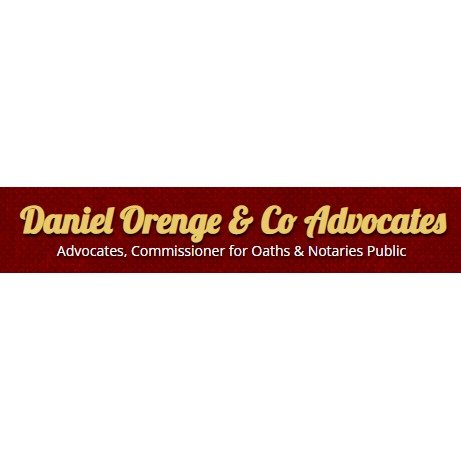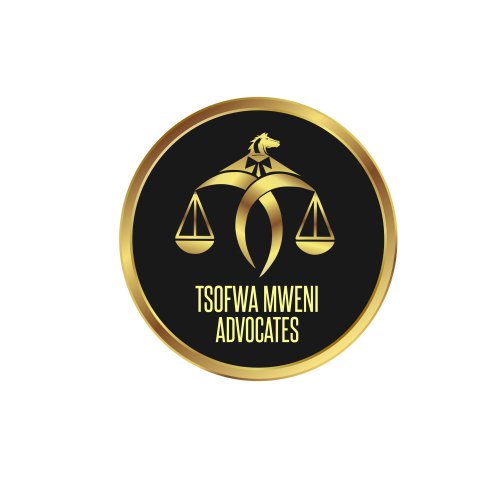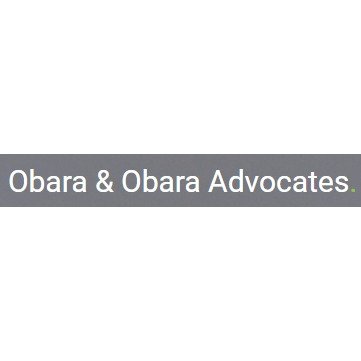Best Land Use & Zoning Lawyers in Mombasa
Share your needs with us, get contacted by law firms.
Free. Takes 2 min.
Free Guide to Hiring a Real Estate Lawyer
List of the best lawyers in Mombasa, Kenya
Kenya Land Use & Zoning Legal Questions answered by Lawyers
Browse our 1 legal question about Land Use & Zoning in Kenya and read the lawyer answers, or ask your own questions for free.
- Is adverse possession law still exist
- Someone claimed that he had stayed in our land for 12 years and was granted by court to own 2 acres on adverse possession rule. Is this rule still existing in Kenya
-
Lawyer answer by Adroit Law LLP
Yes, this doctrine is still in force and is grounded in Section 7 of the Limitation of Actions Act. Under this law, a person who has had continuous, open, and exclusive uninterrupted occupation and possession of the property over 12...
Read full answer
About Land Use & Zoning Law in Mombasa, Kenya
Land Use and Zoning laws in Mombasa, Kenya, play a crucial role in regulating the development and use of land in this coastal region. These laws ensure that land is used efficiently and sustainably, in line with the city's urban planning objectives. Mombasa, being a vital economic hub and a major tourist destination, faces unique challenges in balancing urban growth with environmental conservation. Zoning laws divide the city into zones, dictating how land within these zones can be used, be it for residential, commercial, industrial, or agricultural purposes.
Why You May Need a Lawyer
There are several situations where you might need legal advice regarding land use and zoning in Mombasa:
- Development Projects: If you're planning a new development, you need to ensure compliance with zoning laws and obtain necessary permits.
- Land Disputes: Disagreements over the use or ownership of land are common and may require legal intervention.
- Zoning Violations: If accused of a zoning violation, a lawyer can help you navigate enforcement actions and penalties.
- Rezoning Applications: Changing the zoning designation of a property involves complex legal procedures.
- Environmental Compliance: Ensuring that land use complies with environmental regulations can require legal expertise.
Local Laws Overview
In Mombasa, zoning and land use are governed by several key regulations and policies:
- Physical Planning Act: This national legislation provides guidelines for land use planning and development control.
- Mombasa County Development Plan: A strategic document that outlines the vision for urban development in the region, which must align with zoning laws.
- NEMA Regulations: These relate to environmental management and impact assessments required for development projects.
- Building Codes and By-laws: These dictate construction standards and permissible land uses within different zones.
Frequently Asked Questions
What is zoning, and why is it important?
Zoning refers to the division of land into sections for different uses, such as residential or commercial. It is important because it helps ensure organized development and minimizes conflicts between incompatible land uses.
How can I find out the zoning for my property in Mombasa?
You can contact the Mombasa County Government or consult land use maps available with the local planning authority to know your property's zoning designation.
What does a change in zoning mean for property owners?
A change in zoning can affect property values, the type of developments allowed, and may require adjustments to existing uses or structures to comply with new regulations.
Who enforces zoning laws in Mombasa?
The Mombasa County Government, along with local planning authorities, is responsible for enforcing zoning laws and regulations.
Can I object to a zoning decision, and how?
Yes, property owners can file objections to zoning decisions. This typically involves submitting written appeals to the relevant local authority or participating in public hearings.
What happens if I violate zoning regulations?
Zoning violations can result in fines, legal action, and orders to cease non-compliant activities or to remove unauthorized structures.
How are zoning disputes resolved?
Zoning disputes can be resolved through negotiations, mediation, or legal proceedings in a court of law, depending on the complexity of the issue.
Is it possible to convert agricultural land for commercial use?
Converting agricultural land for commercial use requires a rezoning application, environmental assessments, and approval from relevant authorities.
How can I ensure my development complies with all local laws?
Engaging a lawyer or a professional planning consultant can help ensure your development complies with zoning laws, environmental regulations, and other local requirements.
Are there restrictions on buildings near historical sites?
Yes, there are restrictions aimed at preserving historical sites, which may limit the type and scope of nearby developments.
Additional Resources
For further assistance or information on land use and zoning in Mombasa, consider reaching out to the following:
- Mombasa County Government: The local authority responsible for urban planning and zoning regulations.
- National Environment Management Authority (NEMA): For environmental impact assessments and compliance advice.
- Land Control Boards: For issues related to land use and subdivision.
- Kenya Institute of Planners: An organization offering resources and guidance on land planning and development.
Next Steps
If you need legal assistance with land use and zoning in Mombasa, here are some steps you can take:
- Consult with a lawyer specializing in land use and zoning laws to assess your situation and receive expert advice.
- Gather all relevant documents and information related to your land or property, including titles, development plans, and correspondence with local authorities.
- Prepare specific questions or issues you wish to address during your consultation to make the most of your legal assistance.
- Consider reaching out to local planning consultants or urban developers for additional insights and practical advice.
Lawzana helps you find the best lawyers and law firms in Mombasa through a curated and pre-screened list of qualified legal professionals. Our platform offers rankings and detailed profiles of attorneys and law firms, allowing you to compare based on practice areas, including Land Use & Zoning, experience, and client feedback.
Each profile includes a description of the firm's areas of practice, client reviews, team members and partners, year of establishment, spoken languages, office locations, contact information, social media presence, and any published articles or resources. Most firms on our platform speak English and are experienced in both local and international legal matters.
Get a quote from top-rated law firms in Mombasa, Kenya — quickly, securely, and without unnecessary hassle.
Disclaimer:
The information provided on this page is for general informational purposes only and does not constitute legal advice. While we strive to ensure the accuracy and relevance of the content, legal information may change over time, and interpretations of the law can vary. You should always consult with a qualified legal professional for advice specific to your situation.
We disclaim all liability for actions taken or not taken based on the content of this page. If you believe any information is incorrect or outdated, please contact us, and we will review and update it where appropriate.

















